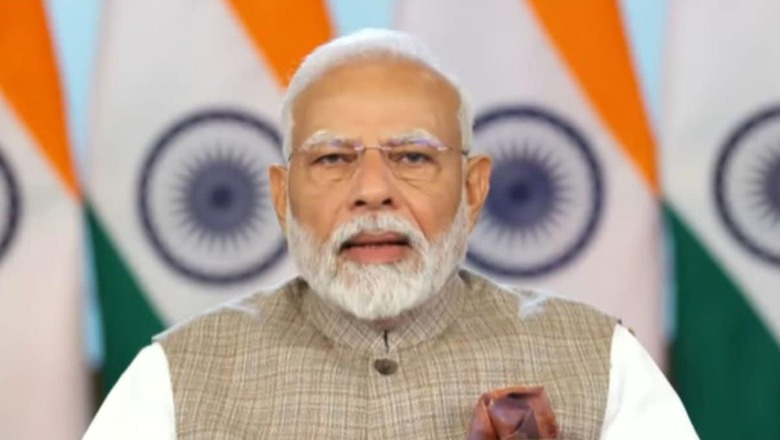
views
Malaysia and India share historical ties dating back at least a millennium, with the Chola Empire dominating the Southeast Asian region. This civilisational relationship is still evident today in the culture, language, and mannerisms of the people of both nations. It is also notable that both countries established independence from the same colonial master in the same month, just 10 years apart: India on 15 August 1947, and Malaysia on 31 August 1957.
Diplomatic relations between the two nations began soon after Malaysia’s independence in 1957, with a strong bond established between their respective Prime Ministers, Jawaharlal Nehru and Tunku Abdul Rahman Putra. This relationship was further strengthened in 2015 and again in 2017 by Najib Razak and Narendra Modi. After a significant hiatus, the prime ministers of the two countries, Narendra Modi and Anwar Ibrahim, are set to hold bilateral talks. Apart from addressing an existing trade balance of about $4.77 billion in Malaysia’s favour, will the two leaders also discuss several other issues that could impact the shifting geopolitical landscape in this region, and possibly on a global level?
In a turbulent and rapidly evolving global landscape, Malaysia clearly needs a balanced foreign, trade, and security policy that leverages several strategic neighbours. India, with its geographic proximity to Malaysia and growing economic prowess, is undoubtedly a prime partner to engage with, alongside others in the region.
India is currently the world’s fifth-largest economy, valued at approximately $3.9 trillion, and is poised to become the third-largest in the near future. It also boasts the second-highest agricultural output globally, after China, at $524 billion. Additionally, India remains a key player in trade across the Indian Ocean, which exceeds $6.17 trillion.
Malaysia could explore food security alternatives with Indian agro-technology players. In addition to increasing baseline agricultural imports, Malaysia could consider joint cultivation and food processing ventures that could be expanded across the Malaysian Peninsula. Beyond meeting Malaysia’s domestic requirements, these initiatives could also open up opportunities for re-exports to the rest of ASEAN and East Asia. Needless to say, efforts of this nature would help expand economic opportunities in Malaysia while also addressing the immediate cost of living concerns faced by all Malaysians.
Furthermore, Malaysia’s northern state of Kedah is in close proximity to the Andaman and Nicobar Islands, located on the cusp of the Andaman Sea. The intense economic development currently being driven by the Indian administration on these islands, coupled with the economic expansion being pursued by the Kedah State leadership, presents significant opportunities for cross-border collaboration in the form of an economic corridor.
Malaysia is well known for its semiconductor ecosystem, established several decades ago. As India embarks on its journey into the semiconductor sector, Malaysia’s experience could be leveraged to provide technical assistance to its regional neighbour. Additionally, Malaysia may be well-positioned to explore collaborations with Indian counterparts to establish processing plants for Rare Earth Elements (REE), which could play a crucial role in supporting the high-tech industry, a key strategic lynchpin for global growth and security.
BRICS has recently emerged as a potential economic platform for Malaysia, as expressed by Anwar Ibrahim. India is a founding member of this economic bloc, along with China and Russia. This bilateral meeting could be an opportune time to seek India’s support in exploring this partnership. It may also present a broader strategic opportunity for Malaysia to explore the participation of ASEAN as a regional bloc alongside BRICS, especially given that Malaysia will assume the revolving Chairmanship of ASEAN later this year.
An added dimension to the geopolitical relationship between Malaysia and India is the geographic position and proximity of the Straits of Malacca, which serves as a gateway between the Indo-Pacific and the South China Sea regions. As one of the busiest trade channels, the Straits of Malacca must be secured from any potential threats. Close security collaboration between these two neighbours is essential to ensure that this strategic channel does not become a potential choke point in the event of a supply chain disruption in the Asian region.
Clearly, stepping up this civilisational relationship between India and Malaysia offers numerous strategic opportunities. Based on mutual economic growth and security, this relationship certainly offers broader multilateral benefits that would also benefit ASEAN and the rest of East Asia. Enhanced dialogue, diplomacy and collaboration between these strategic neighbours are definitely the need of the hour to provide a geopolitical counterbalance at a time when the region is experiencing uncertainty from multiple state actors.
The author is with CREST, Centre for Regional Economics & Trade Security. The views expressed in this article are those of the author and do not represent the stand of this publication.



















Comments
0 comment